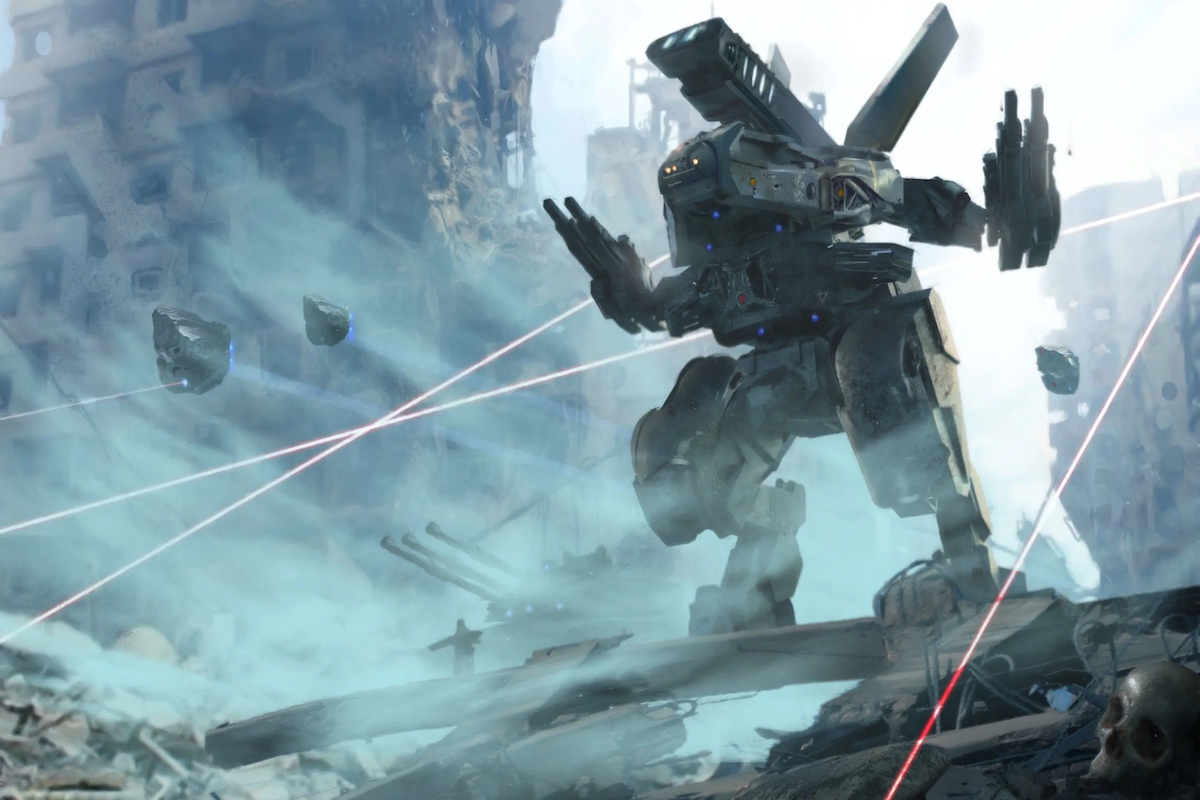MetalCore is moving to Solana in a strategic move designed to improve the gaming experience. With the demand for smoother, faster and more efficient gaming environments growing, MetalCore’s move to Solana is more than just a technical upgrade.
MetalCore is a mech combat game set in a post-apocalyptic world. The game combines first-person shooter (FPS), vehicular combat and large-scale warfare, where players pilot massive mechs and fight for control of vast territories.
What makes MetalCore different is the Web3 integration, players can own and trade in-game assets like mechs, weapons and land as NFTs. This adds a whole new layer of gameplay where players can participate in an evolving in-game economy.
MetalCore’s focus on tactical combat, resource management and alliances means it’s a deep and engaging game. The open beta season 1 has already gotten a lot of attention and with season 2 coming soon, MetalCore is poised for even greater success on Solana.
One of the main reasons MetalCore is moving to Solana is the performance of the blockchain. Solana’s high throughput means transactions are near instantaneous, which is critical for in-game actions that require blockchain interaction. Unlike traditional systems where latency and transaction delays can break the flow of gameplay, Solana’s 3,000 TPS means it’s perfect for a high-demand gaming environment like MetalCore.
Plus, Solana Labs’ GameShift platform brings extra convenience by having a payment system built into the game. This reduces friction for Web2 and Web3 players, so in-game purchases are seamless and the overall experience is smoother. For players new to blockchain this means the transition into Web3 gaming is as easy as possible.
Looking forward Solana’s scalability will get even better with the Firedancer upgrade in 2025. This will mean MetalCore will get to benefit from Solana’s future developments and growing ecosystem. As more protocols are built on Solana, MetalCore will have lower costs and more scalability, so the game can handle more players and transactions without performance impact.
Ethereum vs Solana Features
| Features | Ethereum | Solana |
| Transaction Speed (TPS) | 15-30 TPS | Up to 3,000 TPS |
| Transaction Fees | High (can reach over $10) | Low (fractions of a cent) |
| Scalability | Limited without layer-2 solutions | Highly scalable |
| Energy Efficiency | Energy-intensive (though improved with Ethereum 2.0) | Energy-efficient |
| Smart Contract Flexibility | Highly flexible | Flexible with fast processing |
| Network Congestion Impact | Significant during peak times | Minimal due to high throughput |
Better Gameplay
For MetalCore players, the move to Solana will mean a whole new experience. Solana’s fast transactions and low fees will reduce lag, so gameplay will be smoother and real-time. This is critical for a game like MetalCore, where split-second decisions can win or lose battles.
Along with performance improvements Solana enables asset management within the game. Players will be able to convert in-game assets into Web3 assets which can be owned, traded and sold outside of the game. This adds a whole new layer to MetalCore’s economy and gives players more control over their digital assets. Web3 payments are seamless so the player driven economy is more dynamic and engaging.
Solana’s high TPS means a lot of transactions can be processed without any delay. This means a lag free environment where players can fully get into the game without the disruptions that plague other blockchain games. MetalCore’s season 2 which will be on Solana will show this off even more as players can migrate their existing assets and experience the full power of the new blockchain.
Future and Development
The move to Solana isn’t just about the immediate gains it’s about future proofing MetalCore. The Solana Foundation’s commitment to upgrades like the Firedancer update means MetalCore will get to benefit from the blockchain’s future developments. As Solana’s ecosystem grows, MetalCore will have access to more protocols that will enhance scalability and performance so the game can grow without being limited by technical boundaries.
For the development team this means more flexibility. By using Solana’s infrastructure the team can focus on creating new content and features instead of worrying about scalability and performance. This opens up new possibilities for MetalCore’s future, more complex game mechanics, bigger in game worlds and a more robust in game economy.
In the end MetalCore is unleashing the benefits of the blockchain, players get a faster, more secure and more scalable platform. This will change the way players interact with the game, everything from transactions to gameplay will be more efficient and fun.
Conclusion
MetalCore’s move to Solana is a player first and long term focused decision. By using Solana’s high TPS, low fees and growing ecosystem MetalCore is positioning itself at the forefront of blockchain gaming. Players can expect a smoother more dynamic experience and the development team can focus on innovation and growth. With Solana’s upcoming upgrades and continued evolution the future is bright for MetalCore and its growing player base.
Editor’s note: This article was written with the assistance of AI. Edited and fact-checked by Owen Skelton.
Credit: Source link
































